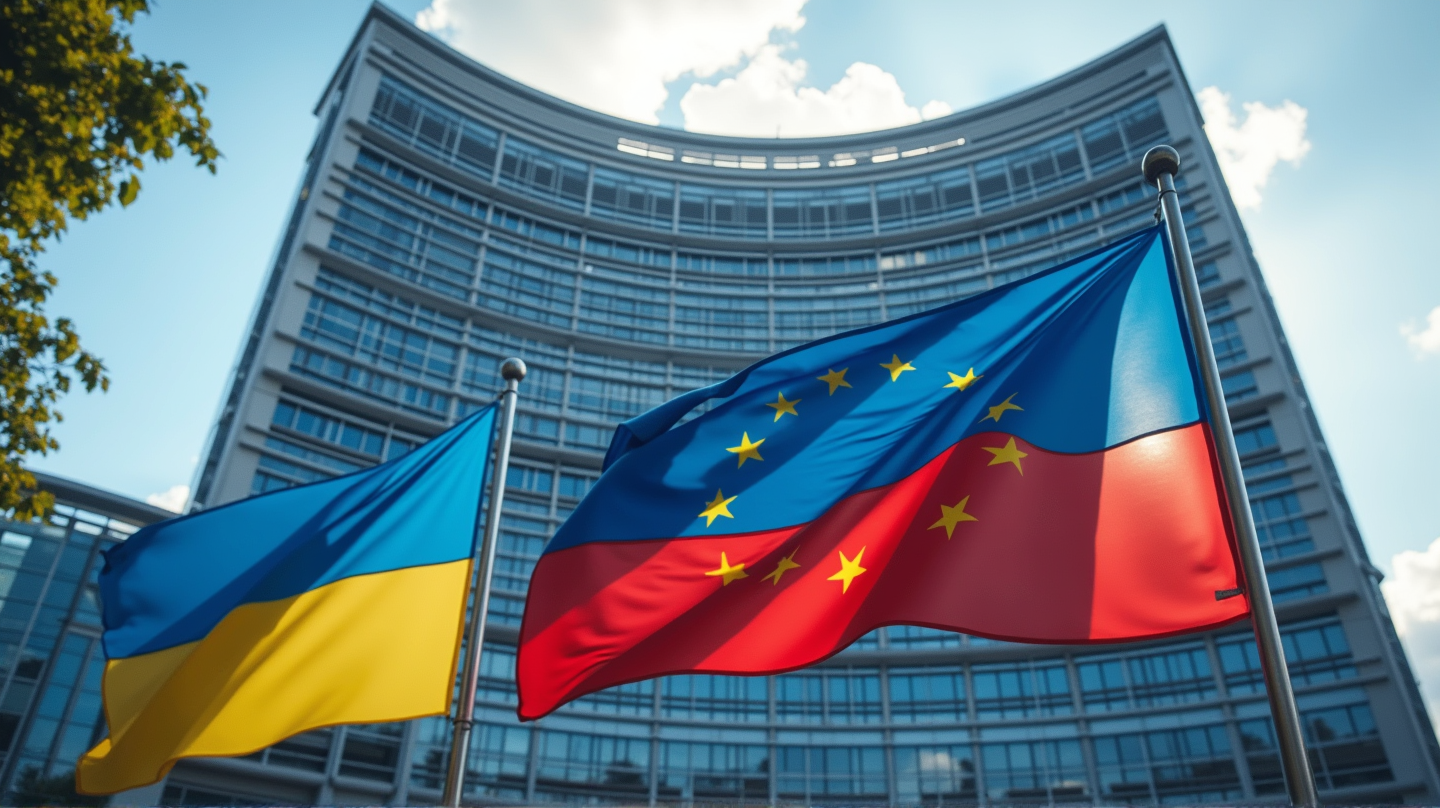EU Supports Using Frozen Russian Funds for Ukraine
The EU Commission's proposal to leverage Russian state bank's frozen funds for Ukraine gains significant backing from member states.

The proposal by the EU Commission to utilize the frozen assets of the Russian state bank stands as a crucial step towards providing much-needed financial support to war-torn Ukraine. As tensions continue to rise between Russia and Ukraine, the European Union seeks innovative solutions to maintain stability and aid in reconstruction efforts.
Backing from Member States
In a move that reflects the urgency of the situation, several EU member states have rallied in support of the Commission’s proposal. According to Table.Briefings, the green light from the Council Presidency underscores a collective agreement on redirecting these funds to Ukraine as an alternative seems to dwindle. This growing consensus highlights the European Union’s commitment to standing by Ukraine, providing a lifeline in critical times.
Addressing Fiscal Challenges
As Vice President of the Commission, Valdis Dombrovskis emphasized the importance of sustainable fiscal policies that align with the EU’s strategic goals. The suggestion to channel the frozen Russian assets into Ukraine’s economic restructuring is seen as both a pragmatic response to fiscal constraints and a symbolic gesture of solidarity with Ukraine amidst the ongoing conflict.
The Role of Sanctions
Sanctions on Russia have been a contentious issue within international diplomacy. By leveraging the frozen funds, European leaders aim to send a clear message to Moscow while simultaneously assisting Ukraine. This approach signifies a broader strategy of using economic measures to leverage peace and cooperation. The effectiveness of sanctions and their broader implications remain a focal topic of discussion.
Future Prospects and Challenges
The journey forward is fraught with challenges, but the consensus among EU nations on using the Russian funds reflects a unified commitment to Ukraine’s cause. Providing financial aid is but one facet of a complex geopolitical puzzle, and European leaders are hopeful that these efforts will pave the way for a more stable and prosperous Ukraine.
As stated in Table.Briefings, Russia’s actions in the geopolitical landscape continue to be met with resilience from European allies, with the usage of frozen assets accentuating a proactive stance on supporting nations in dire need.
This moment in history showcases the delicate balance between diplomacy, economic strategy, and humanitarian support, as the European Union navigates the tumultuous waters of international relations.





